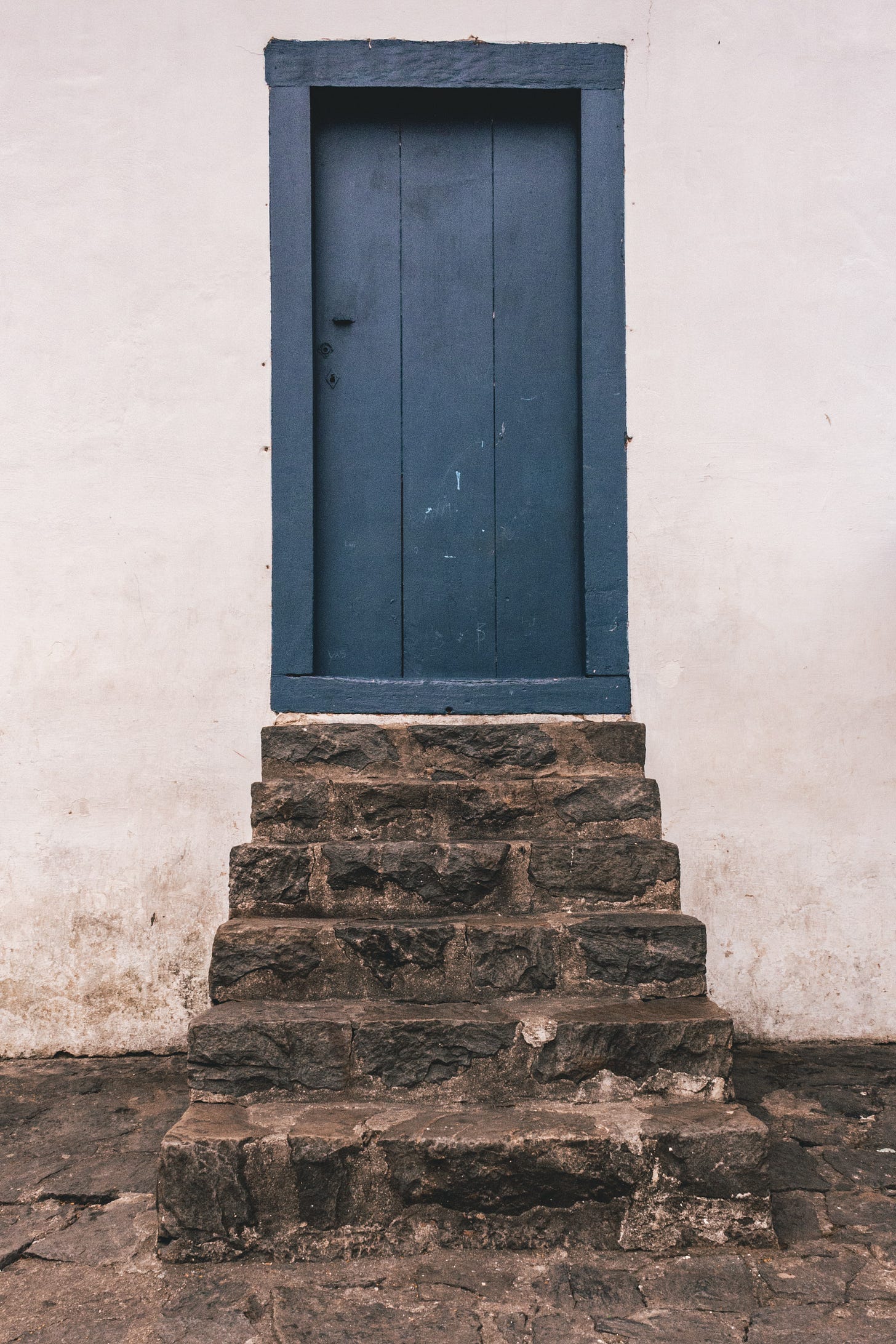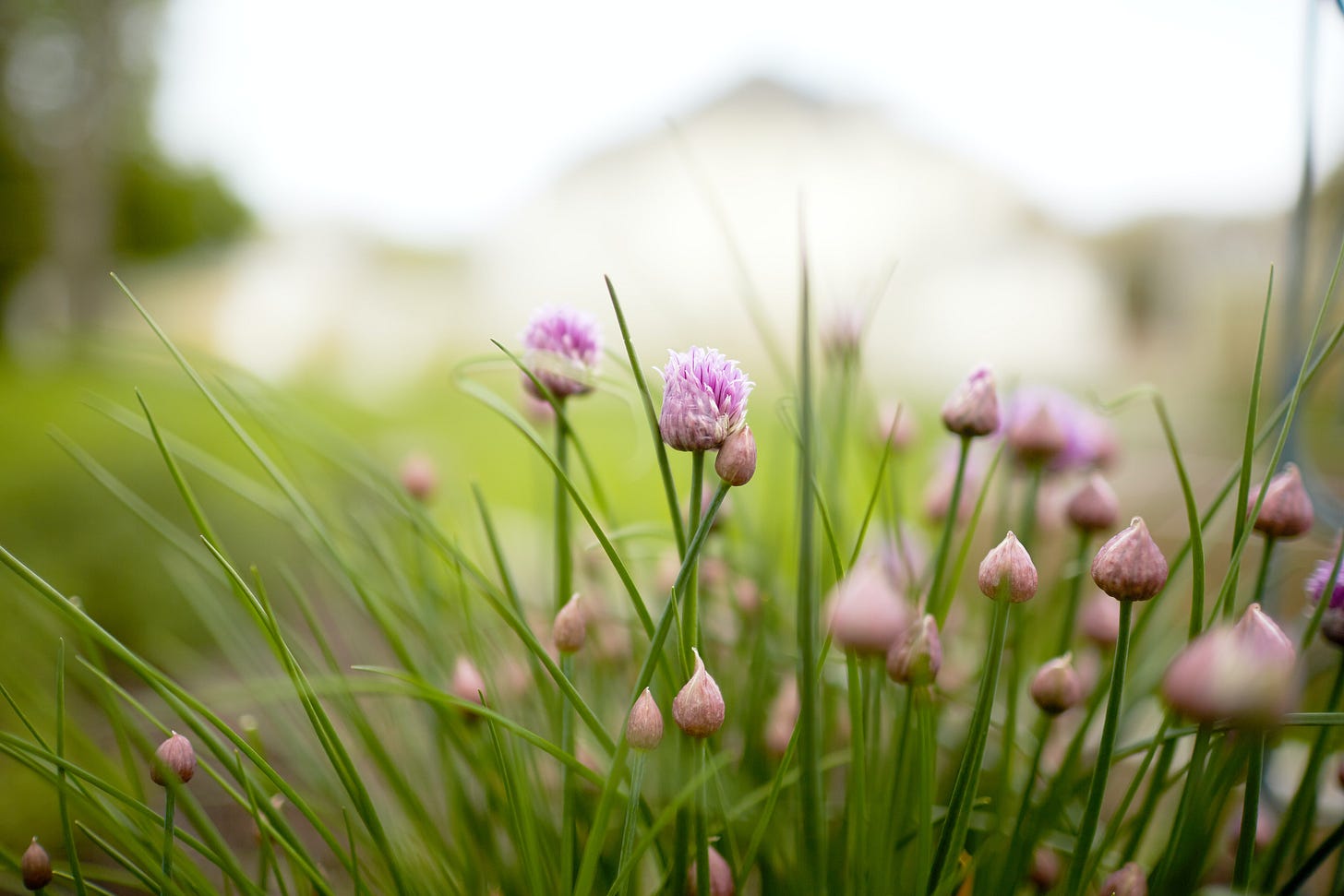Small Steps
The proven power of small
"When you improve a little each day, eventually big things occur. When you improve conditioning a little each day, eventually, you have a big improvement in conditioning. Not tomorrow, not the next day, but eventually, a big gain is made. Don't look for the big, quick improvement. Seek the small improvement one day at a time. That's the only way it happens—and when it happens, it lasts."
—John Wooden
This week I heard the story that caught me off guard with its surprising insight. It was of a woman talking with her yoga instructor. He mentioned that he had meditated 30 days in a row. She was impressed and commented that she could never do that. He responded, "I aim lower." The yoga instructor explained that he had a goal to meditate daily. But, if he realized that he hadn't meditated in the middle of the day or late in the evening, he stopped and silenced his mind for a minute or two.
Aim lower feels like a grace-full invitation. It's easy to think meditate every day means 25 minutes in the full lotus position, with a silent mind, and anything less doesn't count. What if taking a few deep breaths and silencing the mind for a minute in the Starbucks drive-through did count?
Aim lower is an invitation to set ourselves up for success. It means that instead of measuring perfection, we can measure progress. It means there is space for our humanness, mistakes, and misdirections. We can celebrate small wins as progress.
Aim lower is a counter-cultural invitation. People don't write about their halfway stories. They share their winning stories. It is easy to start to adopt an all-or-nothing mindset. Either we meditate for 30 minutes two times a day, or it doesn't count. Aim lower reminds us that a win is a win is a win.
Aim lower is permission to try new things. We aren't going to meditate like Deepak Chopra when we start. But we can start and try and try again and learn with every experience. It’s easier to try new things when we know there is room to make mistakes and learn as we grow.
Smaller & Deeper is about finding tools, ideas, and permission to live counter-culturally. Aim lower fits because it reminds us that goals are good. Small, achievable, realistic goals are some of the best kinds. Small goals set us up for success. Each time we achieve a small goal, it creates the conditions for more success.
Robert Maurer, in his book One Small Step Can Change Your Life: The Kaizen Way writes about the power of small goals.
Your brain is programmed to resist change. But, by taking small steps, you effectively rewire your nervous system so that it does the following: "unsticks" you from a creative block bypasses the fight-or-flight response creates new connections between neurons so that the brain enthusiastically takes over the process of change and you progress rapidly toward your goal.
A Quick overview of Kaizen
Kaizen has two definitions:
using very small steps to improve a habit, a process, or product
using very small moments to inspire new products and inventions.
low-key chnage helps the human mind circumnavigate the fear that blocks success and creativity.
All change, even positive ones, are scary. Attempts to reach goals through radical or revolutionary means often fail because they heighten fear. But the small steps of kaizen disarm the brain’s fear response, stimulating rational thought and creative play.
The little steps of kaizen are a kind of stealth solution to this quality of the brain. Instead of spending years in counseling to understand why you're afraid of looking great or achieving your professional goals, you can use kaizen to go around or under these fears. Small, easily achievable goals—such as picking up and storing just one paper clip on a chronically messy desk—let you tiptoe right past the amygdala, keeping it asleep and unable to set off alarm bells. As your small steps continue and your cortex starts working, the brain begins to create "software" for your desired change, actually laying down new nerve pathways and building new habits.
By asking small, gentle questions, we keep the fight-or-flight response in the "off" position. Kaizen questions such as "What's the smallest step I can take to be more efficient?" or "What can I do in five minutes a day.
(Robert Maurer)One Small Step Can Change Your Life: The Kaizen Way
(One Small Step Can Change Your Life: The Kaizen Way is a pretty quick read. I refer to it often. If you are looking for a good read that is very practical, I would recommend it!)
Photo by Ronaldo de Oliveira on Unsplash
This weeks practice idea is directly from Rober Maurer's book:
Kaizen offers the possibility that through small acts of kindness, and even small moments of compassion and curiosity, we can change ourselves—and, eventually, humanity. We can focus on being generous in daily thoughts and actions so that we don't hoard our kindness for some important person or event, but spend it freely when our children anger us or when an employee deserves a small compliment. We can respect ourselves by taking small steps toward improving our health and relationships; we can respect others by asking them small questions.
By asking small, gentle question, we keep the fight-or-flight response in the “off” position. Kaizen questions such as, “What’s the smallest step I can take to be more efficient?” or “What can I do in five minutes a day to reduce my credit-card debt?” or “How could I find one source of information about adult education classes in my city?” allow us to bypass our fears. They allow the brain to focus on problem-solving and, eventually, action.
What small question can you ask yourself this week?
What is the smallest step you can make to address something that is a challenge or opportunity?
(Bigger isn’t better in this context. . small, tiny, deep is what you are looking for.)
ideas.poems.quotes.songs that sparkled for me this week.
(I try and pay attention to words or phrases that stand out to me in my reading and listening. There is a spiritual practice called Florliledgium that collects short, interesting pieces {words that “sparkle” up} and puts them together to form something new. This is kind of like that. Watching for things that sparkle. Gathering them and seeing how they work together and what message, mantra, or new idea might arise.)
A Practice:
Read slowly.
Notice if a word or phrase stands out to you.
How do the words make you feel?
Is there an invitation?
"To be really great in little things, to be truly noble and heroic in the insipid details of everyday life, is a virtue so rare as to be worthy of canonization."
Harriet Beecher Stowe
"Indeed, the big decisions in life are hardly ever clear—except for one. And that one is piercingly clear: life is a series of dilemmas, of options, of conundrums, of possibilities taken and not taken. Negotiating these moments well is of the essence of the life well-lived."
Joan D. Chittister
Mindfulness is the capacity to recognize things as they are. When you are mindful, you recognize what is going on, what is happening in the here and now. When you recognize something positive, you can enjoy it; you can nourish and heal yourself just by recognizing these positive elements. And when something is negative, mindfulness helps you embrace it, soothe it, and get some relief. Mindfulness is an energy that can hold the suffering, the anger, the despair; if you know how to hold your suffering long enough, you get relief.
Thich Nhat Hanh
“All too often we bemoan our imperfections rather than embrace them as part of the process in which we are brought to God. Cherished emptiness gives God space in which to work. We are pure capacity for God. Let us not, then, take our littleness lightly. It is a wonderful grace. It is a gift to receive. At the same time, let us not get trapped in the confines of our littleness, but keep pushing on to claim our greatness. Remind yourself often, “I am pure capacity for God; I can be more.”
Macrina Wiederkehr
Photo by David Todd McCarty on Unsplash
Typos and misplaced commas are all my own and prove my humanity.






